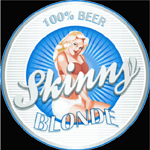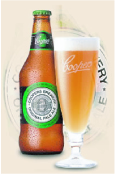The tender offer is in line with Kirin’s planned purchase of up to 49 percent of San Miguel Brewery shares, while San Miguel intends to keep a majority stake of at least 51 percent in the beer-making unit.
Commentators have argued that the tax was a cynical and selective tax grab when it was introduced last year. It still is. Evidently, the increased cost of alcopops led to people switching to straight spirits. While sales of bourbon-based alcopops dropped by 40 percent in the latter part of last year, business in wholesale bourbon rose by nearly 60 percent.
The finding has angered a Barossa Valley vigneron who pioneered the use of the drought-tolerant variety and now has a large volume of labelled product ready for export.
Kirin Holdings announced on 27 April 2009 that it has reached an agreement with Lion Nathan’s Independent Board Committee on key terms under which Kirin would acquire all of the issued shares in the Australian brewer that it does not already own.
Call it sheer blonde ambition: brewers have lined up other blondes, for example Bondi Blonde, Classic Blonde, Haagen Blonde, Natural Blonde, Platinum Blonde, Virgin Blonde.
By 1998, he had rejoined the corporate fold as chief brewer for Lion Nathan, which had acquired the Hahn Premium brand (as well as Hahn Brewing) and supported the new Malt Shovel venture at Camperdown, Sydney, in the original Hahn Brewery. Chuck later passed the role of chief brewer to Bill Taylor in order to focus on the Malt Shovel venture.
Mr Cooper said that to ensure the practice of rolling became better known, Coopers had launched a AUD 1 million advertising campaign in its home state of South Australia to highlight the practice and promote the key difference between Coopers Original Pale Ale and most other beers – the cloudy
Although non-Japanese alcoholic beverages imported or produced under license make up only a fraction of the domestic market, Kirin hopes to increase its domestic market share through addressing the diversification of personal preferences within Japan’s aging population.
Nevertheless, the alcopop levy will stay until 13 May – even though Parliament, following the Senate, axed the levy in March.
In keeping with the Government’s war on binge drinking, John Harvey has learnt that the concessional tax on low-alcohol beer, worth AUD 48 million over four years, is likely to be retained but the concessional rate of excise on brandy, which is 7 percent lower than for other spirits will disappear, at a cost to drinkers of AUD 20 million.


